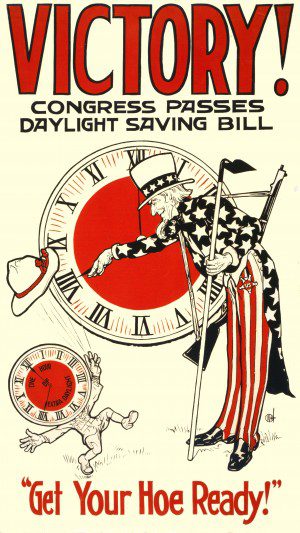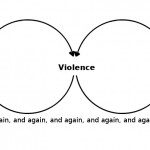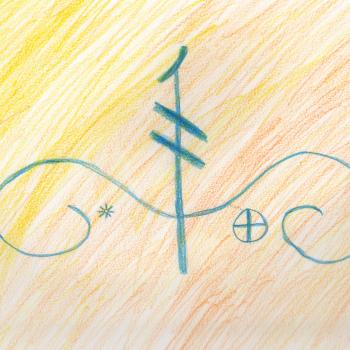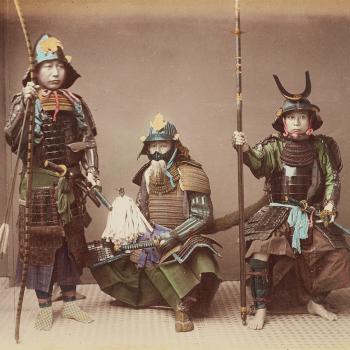In most of the U.S. last weekend brought not just Samhain/Halloween, but the change from Daylight Saving Time to Standard Time.
It seems like every time the change comes around there’s a flurry of posts decrying the practice. Someone will post how the stress of the time change has adverse health effects. But others will point to how keeping commutes to daylight hours reduces accidents. It does seem that since the introduction of widespread air conditioning, getting people home with more daylight and more day-heat doesn’t really save energy, but maybe if we get Americans to stop setting the thermostat to refrigerator levels in the summer that would change.
If I were King of the World — or at least the United States — I’d set the change back the way it was in 2005, so as to minimize the number of days during which the sunrise happens after 7am. (At least around my latitude. You’re on your own if live live further north!)
Daylight savings isn’t the only way in which our time keeping has discontinuities. There’s intricacies of leap years, the eleven days skipped in 1752 (and the fact that we can therefore legitimately commemorate George Washington’s and Benjamin Franklin’s birthdays on two different days), and the problems of the leap second.
All of these time changes, from leap seconds to leap years, are reminders that we have to synchronize our human actions to the natural world, that as much as our industrial technological society tries to stand apart from the chaotic cycles of days and seasons it cannot do so.
I see some of my fellow technologists try to set themselves apart from this. I see one commenter on tech on a tech news site say how they can start work at 9 or 10 or an hour after sunrise, it doesn’t matter. I see the xkcd web comic joke about following a 28 hour day
If you never leave the server room, perhaps you can do that. But the primary function of time since the dawn of civilization has been to allow human activity to synchronize with the position of the sun, from planting seasons to night watches.
Most human beings have lives that are affected by sunlight. At the very least commuting in light or dark matters. Construction, farming, and many other jobs are deeply affected by daylight conditions. And some of us with time-independant jobs still like to go and play in the big blue room while it’s blue.
So let us take each time change as an opportunity to reflect upon and celebrate the ways in which the rhythms of our lives are entrained with those of the planet.
You can keep up with “The Zen Pagan” by subscribing via RSS or e-mail.
If you do Facebook, you might choose to join a group on “Zen Paganism” I’ve set up there. And don’t forget to “like” Patheos Pagan and/or The Zen Pagan over there, too.


















